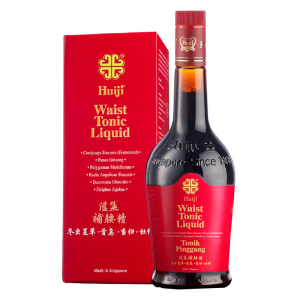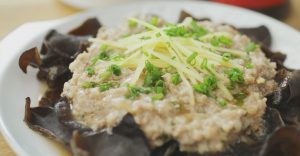Confinement is the period of 28 to 40 days where women, after delivering their babies, will need to replenish their health and strengthen their constitution by consuming nourishing foods and taking proper care of themselves. It is believed that the child delivery process drains the women’s “qi” and the excessive blood loss weakens their body, and hence, completing the confinement period can prevent ailments such as rheumatism in the future. Taking nourishing food during the confinement period will also help to produce sufficient breast milk for the baby or babies.
Avoid “cooling” foods such as raw foods like sashimi and salads, crab or foods cooked the previous day (leftover food) as this may affect the digestion and cause stomach aches. Add “warming” ingredients like old ginger, sesame oil, wine and black vinegar to the dishes to warm the uterus and promote blood circulation.
Eat more foods with protein, iron and vitamin B, such as chicken, pork and fish to help in the recovery. Beef, pork liver and kidney are some great sources of iron. Some popular confinement dishes are stir fried chicken with sesame oil, stir fried pork liver with sliced old ginger and pig’s trotter in black vinegar. Fish also provides Omega3 Fats, but do avoid large fish with high mercury content, such as shark and swordfish; also, avoid shellfish and prawns as these may cause allergic reactions.
Fruits provide vitamins, minerals and fibre; papayas are popular in confinement dishes as fish and papaya soup helps with the production of breast milk. However, do limit the amount of citrus fruits consumed, such as pineapples and oranges as this may result in having excessive vaginal discharge. Consuming too much in fruits may also cause stomach upset for mothers with a weaker constitution. Alternatively, you may choose to boil the fruits with water and consume it together.
Vegetables also provide vitamins, minerals and fibre. Get rid of the “cooling” properties of some vegetables such as Kailan, Lily Buds and Snow Peas with “warming” ingredients such as old ginger. Black fungus is a commonly used vegetable in confinement dishes as it helps to restore “qi” (or good energy).
Chinese herbs like dried wolfberries, dates, longans, Chinese Angelica Root (Dang Gui), Eucommia Bark (Du Zhong) and Codonopsis (Dang Shen) can be added to soups and teas for their blood nourishing and energising benefits (contained in Huiji Waist Tonic!). Drinking dried longan tea, dates tea or roasted rice tea is highly recommended to help with water retention.
Do avoid oily and fatty foods or food that is difficult to digest such as glutinous rice dumpling and glutinous kueh as your gastrointestinal function has not yet fully recovered and these may cause constipation or diarrhoea. Spicy and heaty food like curry and deep-fried or barbecued food should be avoided to prevent constipation. Avoid salty foods such as salted eggs and fermented beancurd as they can reduce lactation.
Finally, as caffeine and alcohol may cause insomnia, it is important to avoid these especially if you are breastfeeding as they can affect breast milk as well.





